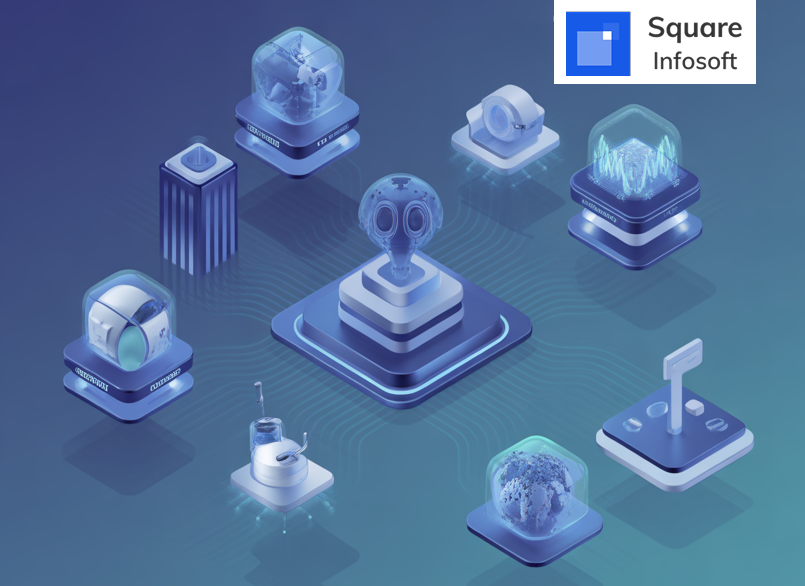Android app development gives businesses a great chance to reach lots of people. But it’s important to know both the good and the tricky parts before deciding to build an app.

✅ Advantages of Android App Development
1. Extensive Market Share and User Base
Android dominates the global mobile operating system market, providing access to a broad and diverse user base. This extensive reach allows businesses to maximize visibility and user engagement.
2. Open-Source Flexibility
Being open-source, Android offers developers the freedom to customize and innovate. Access to the Android Software Development Kit (SDK) enables the creation of feature-rich applications tailored to specific business needs.
3. Multiple Distribution Channels
Unlike platforms restricted to a single app store, Android allows app distribution through various channels, including the Google Play Store, third-party app stores, and direct downloads from websites. This flexibility enhances app visibility and monetization opportunities.
4. Seamless Integration with Google Services
Android’s compatibility with Google services like Maps, Firebase, and Analytics enhances app functionality and user experience. Leveraging these tools can lead to more robust and data-driven applications.
5. Diverse Device Compatibility
Android powers a wide range of devices across different price points, allowing businesses to target various market segments. This diversity ensures that apps can reach users regardless of their device preferences.
❌ Disadvantages of Android App Development
1. Device Fragmentation
The vast array of Android devices with varying screen sizes, resolutions, and hardware capabilities can pose challenges in ensuring consistent app performance across all platforms.
2. Security Concerns
Android’s open nature and multiple distribution channels can make it more susceptible to security threats. Developers must implement robust security measures to protect user data and maintain app integrity.
3. Longer App Approval Process
While Android offers flexibility in app distribution, getting an app approved on the Google Play Store can sometimes be a lengthy process due to stringent guidelines and policies.
4. Monetization Challenges
Compared to other platforms, Android users may exhibit lower willingness to pay for apps, and the prevalence of ad-blocking software can impact revenue from advertisements. Developers need to explore diverse monetization strategies to ensure profitability.
5. Performance Optimization
Ensuring optimal performance across the diverse range of Android devices requires extensive testing and optimization, which can be resource-intensive.
📞 Get in Touch
Looking to develop a robust Android application tailored to your business needs? Our team at Square Infosoft specializes in delivering high-quality mobile app development services.
Contact us today to discuss your project!
FAQ’s
1. What are the key advantages of Android app development?
> Android app development offers several benefits, including:
- Open-source flexibility: Developers can customize the operating system to meet specific needs.
- Large user base: With over 70% of global mobile users on Android, apps can reach a wider audience.
- Cost-effective development: The free Android SDK and tools reduce initial investment costs.
- Easy integration: Seamless compatibility with Google services like Maps and Firebase.
- Faster deployment: Apps can be launched quickly due to fewer restrictions compared to other platforms.
2. What challenges do developers face with Android app development?
> Developers may encounter:
- Device fragmentation: Android runs on various devices with different screen sizes and hardware capabilities, making optimization complex.
- Security concerns: Open-source nature can lead to vulnerabilities if not addressed properly.
- Longer testing cycles: Ensuring compatibility across multiple devices requires extensive testing.
- Higher maintenance costs: Regular updates are needed to support new Android versions and devices.
3. How does Android’s open-source nature benefit developers?
> Android’s open-source nature allows developers to:
- Customize the operating system for unique use cases.
- Access the source code and SDK for free, reducing development costs.
- Collaborate with a global developer community for troubleshooting and innovation.
- This flexibility fosters creativity and innovation in app design.
4. Is Android app development suitable for startups?
> Yes, Android app development is ideal for startups because:
- It is cost-effective due to free tools and resources.
- The large user base ensures high market reach.
- Faster deployment allows startups to launch MVPs quickly and test market viability.
5. How can developers overcome device fragmentation in Android?
> To address device fragmentation:
- Use responsive design principles to adapt apps to various screen sizes.
- Test apps on multiple devices using emulators and physical devices.
- Target popular Android versions with higher user adoption rates while ensuring backward compatibility.




